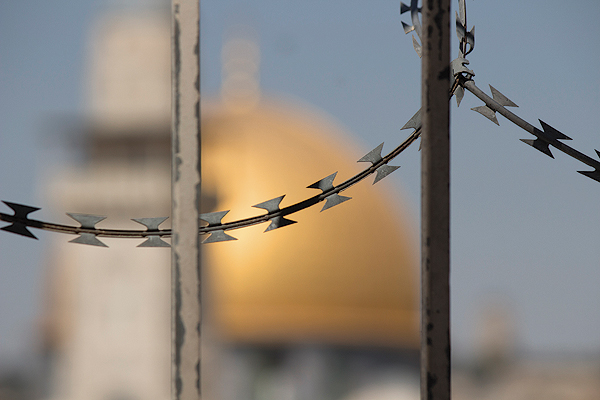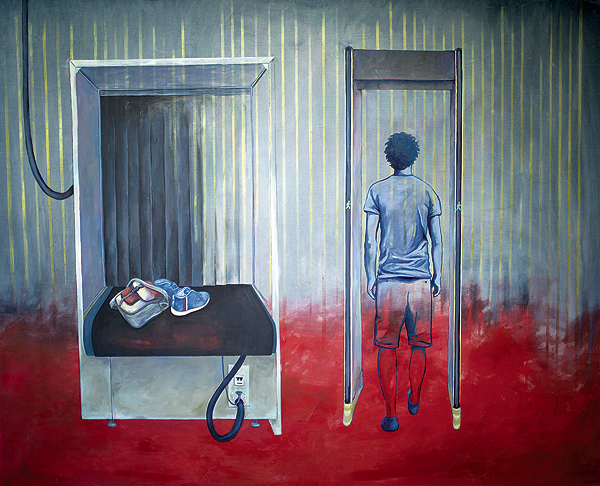
Nowhere in the world is the legal situation as absurd as in Jerusalem. For nearly 50 years, Palestinians have been forced to resort to using Israel’s courts as the only means available in cases when they are either seeking redress for or hope to prevent wrongdoings by Israel. The use of Israel’s courts came after Israel’s occupation of East Jerusalem in 1967, when Israel immediately annexed more than 71 square kilometers of Palestinian West Bank land to Jerusalem and expanded the city limits to include these illegally annexed portions. Moshe Dayan, then Israeli Defense Minister, proclaimed, “[t]he Israeli Defense Forces have liberated Jerusalem. We have reunited the torn city, the capital of Israel… [and vow] never to part from it again.” Twenty-two days later, on June 27, 1967, the Israeli government passed the Law and Administration Ordinance that provided for the extension of Israeli law, jurisdiction, and administration to the newly occupied Arab East Jerusalem. The annexation brought 30 Palestinian villages and a refugee camp into Israel’s municipal jurisdiction. With the annexation, Israel extended the application of Israeli law to the area, and Palestinians living within the municipal boundaries of the city became subject to Israeli law, despite international condemnations to the contrary. The newly expanded East Jerusalem was joined with West Jerusalem, thereby creating the fiction of an “undivided Jerusalem.” Owing, however, to the lack of political pressure on Israel, this illegal annexation continues, with Palestinians forced to seek other means to fight for their right to live in dignity in their homeland and city.
But although Israel wanted Palestinian land, it did not want the Palestinians on that land. Since its unilateral annexation, Israel has invested great effort in preserving what it calls the “demographic balance” in Jerusalem, which means reducing the number of Palestinians living in the city and maintaining a Jewish majority of some 70 percent, although the numbers and figures have varied over the years. Residents of East Jerusalem struggle for their right to continue living in the place where they were born and where their families have lived for generations. Despite this, many of them are forced to leave the city due to Israel’s ongoing policy of discrimination that includes, among other things, revocation of status, strict limitations on housing construction, failure to provide adequate infrastructure, low budget allocations for education, and high property taxes.
♦ Palestinians from East Jerusalem can attempt to prevent or seek redress through Israeli courts for wrongs that violate their basic rights. They have no other means. Increasingly, however, such litigation is becoming meaningless, as courts are ruling in favor of the Israeli government in the large majority of cases.
What began 50 years ago as a means of trying to uphold Palestinian rights in an Israeli court system, litigation before Israeli courts has now turned into a means of legitimating the very court, as it has only served to undermine these rights. The veneer of “legality” over proceedings remains for those outside casual observers of the Israeli legal system, but for those who have worked within the system, these past 50 years have merely demonstrated that Palestinians cannot receive redress within the Israeli legal system.
Today, Palestinians in East Jerusalem must use a legal system that pronounces its judgments in the language of the occupier; they must defend their rights to stay in their homes and homeland, treated as the equivalent of immigrants in the place of their birth and ancestry, and must plead before a court that is an extension of the government and country that seeks their exclusion. The demolition of homes, the theft of land, and the expulsion of East Jerusalem’s indigenous population are all considered “legal” by this court. So prevalent is the use of these courts that I often hear people joke that each Palestinian in East Jerusalem has the number of a lawyer listed on speed dial in their phones. Lawyers can regale friends with horror stories – from stories about families needing to undergo DNA tests to register their kids to families pushing back from settler takeovers. I often find myself explaining the absurdity of Israel’s policies to unbelieving friends, such as the blanket policy of not allowing Palestinian spouses from the West Bank or Gaza Strip to reside in East Jerusalem; that, even when given the limited ability to reside in East Jerusalem, they cannot obtain driver’s licenses or easily obtain health insurance; that they cannot travel through the airport with their family, and so on. All these rules have been upheld in some form by the court.

In the midst of this struggle lie NGOs that work to try to find solutions to the very real and very complicated problems created by Israel’s occupation and colonial desires over Jerusalem. With limited and dwindling resources, NGOs have remained at the forefront of trying to preserve Palestinian rights and a Palestinian presence in the city of Jerusalem. Though they are not always successful, NGOs have spent nearly five decades pushing back against Israel’s territorial and demographic designs. But as good as they are, they will never be able to undo Israel’s rule, for as Audre Lorde once wrote, “For the master’s tools will never dismantle the master’s house. They may allow us to temporarily beat him at his own game, but they will never enable us to bring about genuine change.” Indeed, real change for Palestinians will not come at the end of a gavel but through sustained international pressure demanding an end to Israel’s oppressive rule. Until that time, the world will continue to pretend that Israel’s legal system is a system of justice; but for those of us involved in the system, we know it for what it is: a system of injustice.
» Diana Buttu is a Palestinian lawyer and researcher who resides in Haifa. She previously served as a legal adviser to the PLO negotiations team and later to the PA.


